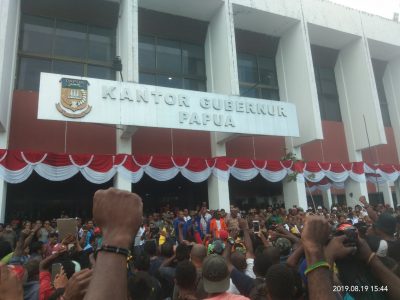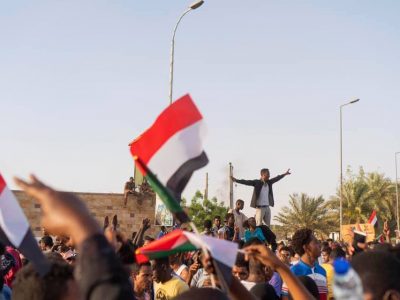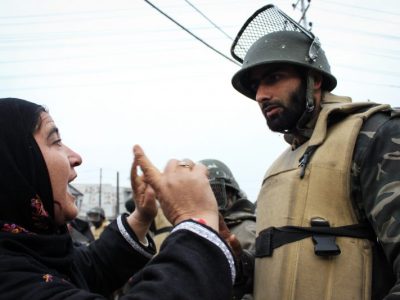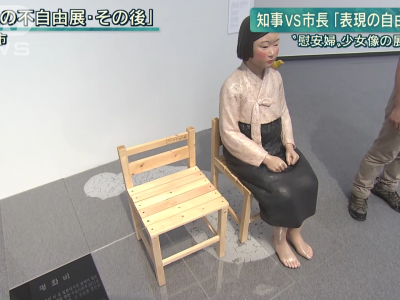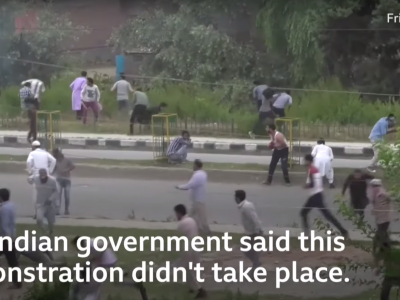Stories about Human Rights from August, 2019
Hong Kong police conducts massive and unprecedented arrest of leading anti-extradition activists
The Hong Kong government has shifted its crackdown tactics from detaining demonstrators on protest sites to arresting a wider network of pro-democracy activists and leaders.
Winning a literary award won't set you free: An interview with author and asylum-seeker Behrooz Boochani
Australia's detention camps whistleblower describes conditions as hellish
Netizen Report: Critic calls Indonesia’s provincial internet shutdown ‘racist’
Indonesia's regional internet shutdown continues, YouTube blocks 210 channels over suspected links to China and Tonga threatens to block Facebook.
Contrary to Serbian government's claims, fact-checking initiative shows that journalists are far from being ‘all safe’
According to Istinomer's research, threats against individual journalists or editorial teams have become rather frequent over the past few months.
The case for reforming the Sudanese Access to Information Act
As Sudan launches a three-year transition to civilian rule, the country's freedom of information law should be amended to serve the public's right to know.
In Nigeria, disability activists say social stigma is greatest obstacle to human rights
“Many people see disability as a charity issue rather than a human rights issue, says Ekaete Umoh, a disability rights activist in Nigeria.
Interview with Erick Huerta, a researcher helping to bring internet access to indigenous communities in Mexico
A project to build and strengthen the communication and technological autonomy of indigenous peoples and communities.
Indonesia sends in troops and cuts internet as West Papua protesters denounce racist treatment of students
"Blocking and restricting access to the internet in Papua and West Papua will make it harder for people living outside of the two provinces to verify facts."
Human rights advocates petition the UN and AU over the detention of Nigerian protest leader
"The unfounded charge of terrorism that was subsequently laid against him was clearly only created to serve the purpose of silencing Sowore."
Netizen Report: The shutdown in Kashmir continues
Kashmir's communications blackout continues, Russia goes after 'illegal' protest videos online, and Google re-opens its office in Egypt.
Reducing carbon footprint and waste generation is the need of the hour, says Indian environmentalist
Global Voices talked with lawyer and environmentalist Afroz Shah, prominently known for launching the world's largest beach clean-up drive in India's financial capital, Mumbai.
Remembering the 1968 Soviet invasion of Czechoslovakia
Over a third of young Czechs are unable to make a link between the date of August 21, 1968 and the Soviet invasion of Czechoslovakia.
In São Paulo’s outskirts, mothers’ face challenges to access ‘humanized childbirth’
Obstetric violence, absence of birth centres, professionals without training in humanised delivery: how can women have a safe and humanised birth in the outskirts of Brazil's biggest city?
Mozambique pushes for SIM card registration, raising privacy concerns
The measure would make it easier for the authorities to identify the owners of registered SIM cards.
Pakistan's government suspends relations with India in show of solidarity with Kashmiris
After Narendra Modi's government in India scrapped Article 370, many Pakistanis asked the ruling party to take action.
China inspects Hongkongers’ mobile phones for protest photos and chats at border checkpoints
In the face of border searches, Hong Kong protesters are picking up new technology tactics to mitigate their risk.
Cinema and new laws bring greater acceptance and visibility for Vietnamese transgenders
LGBTQ+ identities are gaining legal and social recognition in Vietnam, as a documentary illustrates.
Vitriolic response to art exhibit tests the limits of freedom of speech in Japan
A controversial art exhibition at an arts festival in Japan has led to government criticism, threats, at least one arrest, protests by artists and questions about freedom of expression.
Indian government asks Twitter to remove accounts ‘spreading rumours’ about Kashmir
With the communication blackout inside Kashmir, netizens elsewhere resorted to Twitter to speak out against India's revocation of the region's autonomous status.
Apprehension rises over the abduction of a Nigerian government critic
Dadiyata, a fierce critic of Kano State Governor Umar Ganduje, was abducted on August 1 and nothing has been heard of him since.
Indian-administered Kashmir is like an ‘open prison’, says observers
"What is happening in Kashmir is 'normal' in the sense that state-backed violence, deceit and lies, gag on civilian voices, and govt propaganda have always been a 'normal' in Kashmir."



